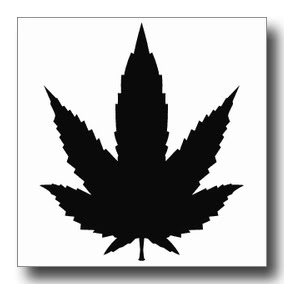I would like to devote this post to addressing the slippery slope argument commonly raised by opponents of marijuana legalization. My reason for doing so is because most of the objections to marijuana legalization revolve around this sort of logic, which I will contend to be fallacious.
One of the strongest variants of this form of argumentation is that marijuana legalization would open the floodgates to widespread drug abuse, and that the social undesirability of widespread drug abuse should therefore suffice to prevent its legalization. Yet notice how the logic of this argument works - by claiming that marijuana legalization would result in widespread abuse, the assumption is that the former is inversely and directly related to the latter in a simplistic two-model relationship. This sort of reasoning is fallacious because there is no reason to suggest that marijuana legalization would inevitably result in widespread drug abuse; it holds no more weight than the converse argument that marijuana legalization would inevitably not result in widespread drug abuse.
Of course, to dismiss the slippery slope argument is not to deny the possibility that the picture painted by the slippery slope may in fact, come into being. But how much cogency might this view possess? While there is certainly some justification for the argument that a more liberalized law might encourage a more liberalized attitude to marijuana use, to extrapolate this to encompass a slippery slope of moral decadence in society would be to assume that social norms and attitudes are wholly dependent on the rule of law. By the very same logic, relaxed gun laws would inevitably result in cases of more people shooting one another, as would relaxed cigarette laws on more people smoking.
What seems to be overlooked in all these is the factor of human agency. People nonetheless still possess the inherent ability to make choices, and not all choices are – even though it is attractive to think so – necessarily bad ones. To treat the rule of law simply as the sole arbiter of social behaviour like the slippery slope argument does is convenient, but unpersuasive. Worse, underpinning this sort of reasoning is the idea that human beings are wholly dependent on the rule of law to decide what is beneficial and harmful to us. I would instead like to think that most of us have the ability to decide these on our own.
Subscribe to:
Post Comments (Atom)


I like how you brought up the rule of law in your discussion of marijuana legalization. I wholly agree that our behaviour is not dictated fully by the law even though the law does still play a part. Marijuana laws need to be re-examined, if not changed altogether.
ReplyDeleteWhy then do we have laws if we are able to make decisions on our own, and presumably, make the right and moral ones?
ReplyDeleteThe idea you put forward here is underpinned by the definition of the law as a restraining force. However, the law has other functions apart merely restricting action and dictating human agency. What about representing the views of society? In that respect, the establishing of the law in itself is an act of human agency.
Jane, you are right in saying that the function of the law is not merely in restricting action and dictating human agency. You are further right in saying that the law should also possess the normative function of representing the views of society. Applied in the context of my argument, what is striking is that the former was dictated - and as I argue, somewhat unjustifiably so - by early lawmakers during the 1920s, and the latter is what ought to be done to correct this gap between the law and popular sentiment.
ReplyDeleteI would like to think that the solution is as simple as what you have posited. In an ideal, democratic society, the laws would certainly exist to represent the views of society. Unfortunately, the assumption made here is that the decisions of people who make laws are necessarily tangential to the interests of the majority. This ideal is seldom the case in bureaucratic realities, and the particular example of Harry Anslinger certainly gives the lie to the above in my case of marijuana. No doubt the establishing of the law in itself is an act of human agency, but the extent of this exercise and privilege is only confined to a select few - the few who make laws. In cases where the law does not accurately represent the views of society, it therefore cannot possibly be the case that human agency is given a meaningful opportunity to be exercised.
James, thank you for your comments. I explore the role of law in this debate in the subsequent posts. My main point - and I recognize its normative quality - is that the law should recognize the contemporary circumstances of the phenomena it is intended to arbitrate, rather than act as a static bulwark against an "imagined" notion of moral rightness.
ReplyDelete